RSS


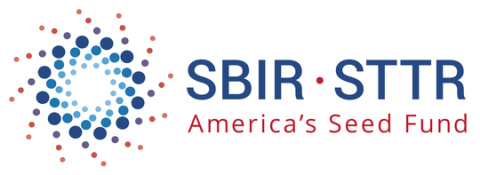
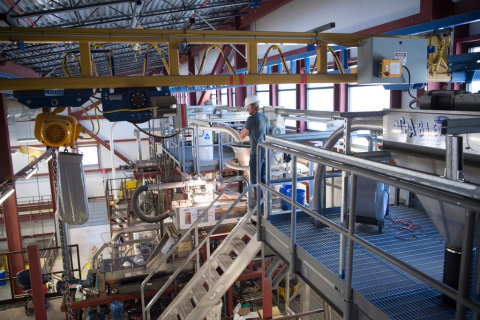
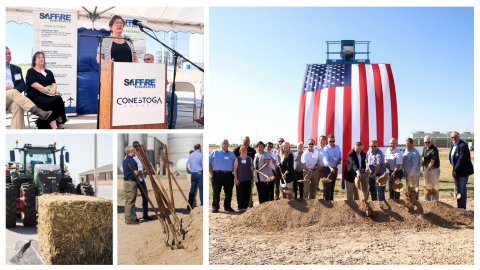
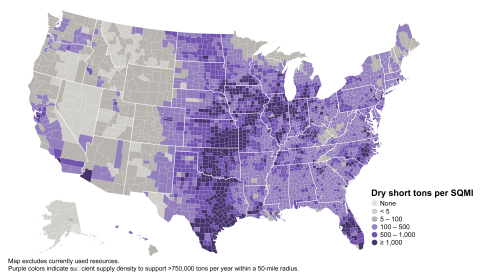

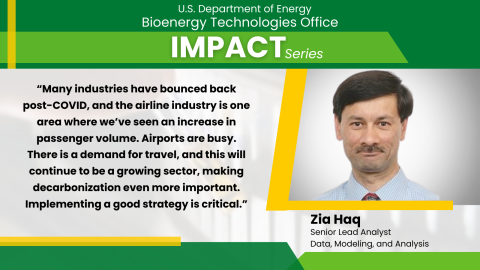
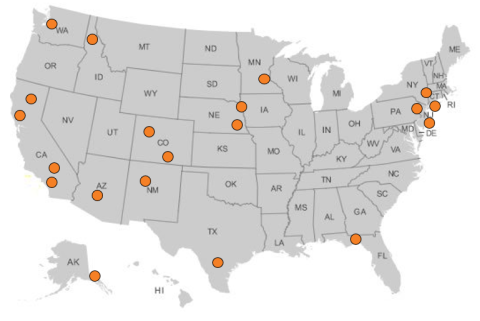

Today, an interagency team led by the U.S. Department of Energy (DOE), U.S. Department of Agriculture (USDA), and U.S. Department of Transportation’s (DOT’s) Federal Aviation Administration (FAA) released the Sustainable Aviation Fuel (SAF) Grand Challenge: Tracking Metrics and Mid-2024 Dashboard. USDA Secretary Thomas Vilsack made the announcement at the North American SAF Conference in St. Paul, Minnesota. The Metrics Dashboard summarizes actions and progress to help drive innovation and expand the production and use of SAF to meet the Grand Challenge target of 3 billion gallons of SAF in the United States by 2030.

Emerging bioenergy technologies are transforming the foundation of our lives, everything from clothing to plastics to fuels. Through biotechnology and biomanufacturing, biomass across the United States can be converted into new materials and provide an alternative to petroleum-based production for fuels and products. The U.S. Department of Energy’s (DOE’s) Bioenergy Technologies Office (BETO) is doing its part to strengthen America’s bioeconomy and supply chain to support energy innovation.

The U.S. Department of Energy (DOE) announced awards totaling $142 million for small businesses through DOE’s Small Business Innovation Research (SBIR) and Small Business Technology Transfer (STTR) Phase II funding. Across DOE, 123 projects in 34 states received funding to pursue energy research and development projects. The average Phase II award is $1.1 million for a period of two years.

The U.S. Department of Energy (DOE) Bioenergy Technologies Office (BETO) is overseeing a call for industry partnerships to connect industry stakeholders with the capabilities of the Feedstock-Conversion Interface Consortium (FCIC). This funding opportunity will provide resources that allow partners to collaborate with FCIC researchers to address the cost and risk impacts of feedstock and process variability across the bioenergy and bioproducts value chain.

SAFFiRE Renewables Fuel broke ground on a pilot plant that represents a firm step toward meeting the goals of the Sustainable Aviation Fuel (SAF) Grand Challenge. The SAFFiRE plant, located at Conestoga Energy’s Arkalon Energy facility in Liberal, Kansas, will ultimately be capable of processing 10 tons of corn stover daily, yielding cellulosic ethanol that can be upgraded into SAF with a carbon footprint at least 83% lower than conventional jet fuel. In 2021, the U.S. Department of Energy's (DOE's) Bioenergy Technologies Office (BETO) provided initial funding for the plant, which Southwest Airlines matched.

Stakeholders, such as farmers, industry, and local, regional, and national planners, have a powerful, free, and easy-to-access data portal at their command to unlock the power of bioenergy: the U.S. Department of Energy’s (DOE’s) Bioenergy Knowledge Discovery Framework, or BioenergyKDF. The portal, stewarded by Oak Ridge National Laboratory (ORNL) for DOE’s Bioenergy Technologies Office, is the nation’s premier source of information on biomass potential, providing high-quality data that can guide funding in support of a robust bioeconomy with low-carbon energy sources.

Seaweed, in its many forms, serves distinct purposes. It’s a vitamin-rich snack, with many health benefits. In the water, it provides a safe habitat for sea creatures, absorbing gases and nutrients like carbon dioxide, nitrogen, and phosphorous. It’s even used as an extra ingredient in ice cream, thickening it and preventing ice crystals from building up.

Accelerating emissions reduction targets and building a renewable future across the aviation industry are key priorities for the U.S. Department of Energy’s (DOE’s) Bioenergy Technologies Office (BETO).

The U.S. Department of Energy’s (DOE’s) Bioenergy Technologies Office (BETO) and National Renewable Energy Laboratory (NREL) announced the 2024 community partner selectees for the Waste-to-Energy (WTE) Technical Assistance for State, Local, and Tribal Governments Program. The program will provide technical assistance for 20 communities in 14 states.

The U.S. Department of Energy (DOE) Bioenergy Technologies Office (BETO) will fund a Cooperative Research and Development Agreement (CRADA) to accelerate wood heater innovation, reduce wood heater pollutants and develop the next generation of efficient and clean wood heaters. Up to $2 million will be available for Phase 2 of this competitively selected CRADA call, administered by Lawrence Berkeley National Laboratory (LBNL) and Brookhaven National Laboratory (BNL). Up to four projects will be selected with a project duration of 12–24 months, and applicants are expected to provide 20% cost share of the requested funding.

